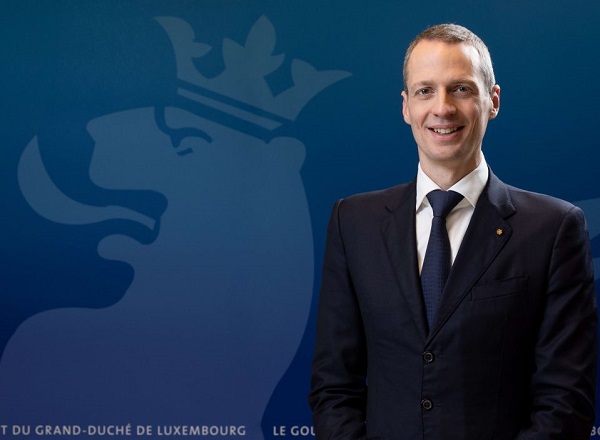 Serge Wilmes, Luxembourg's Minister of the Environment, Climate and Biodiversity;
Credit: © SIP / Claude Piscitelli
Serge Wilmes, Luxembourg's Minister of the Environment, Climate and Biodiversity;
Credit: © SIP / Claude Piscitelli
On Monday 14 October 2024, Luxembourg's Minister of the Environment, Climate and Biodiversity, Serge Wilmes, participated in the meeting of the European Union (EU) Environment Council, which was held in Luxembourg-Kirchberg.
Environment Ministers met to approve the negotiating mandate for the 29th Conference of the Parties (COP 29) to the United Nations Framework Convention on Climate Change, which will take place in Baku (Azerbaijan) from 11 to 22 November 2024.
In this context, Minister Wilmes noted "the European Union must continue to play its leading role at international level and that, in order to remain credible, it will have to take a clear position on the ambition of its nationally determined contribution (NDC), and towards the 2035 and 2040 horizons". The Minister also stressed that "the EU must be clear to the outside world that our discussion within the European Union is in line with science" and, for this reason, supported in his Council conclusions "the explicit mention of the reduction target recommended [by the European Commission] of 90%".
For the Luxembourg minister, the "disastrous impacts in Europe and elsewhere in the world demonstrate the urgency of ending our use of fossil fuels - and the EU text must reflect this unambiguously". In this context, Minister Wilmes supported "strengthening the passages relating to the exit from coal, the most polluting fossil fuel, to speak out more clearly on the end of subsidies for fossil fuels and specify that this exit must take place without delay" and stressed "the space dedicated to the voices of science and youth is important to him in this discussion".
The Council then met to approve the negotiating mandate for the 16th Conference of the Parties (COP 16) to the Convention on Biological Diversity to be held in Cali (Colombia), from 21 October to 1 November 2024.
In this context, Minister Wilmes indicated: "The global biodiversity framework is a superb success, but we must now change course". He also took the opportunity to mention the alarming conclusions of the Living Planet Report published last week by the World Wildlife Fund (WWF). Minister Wilmes highlighted Luxembourg's efforts by recalling: "Luxembourg is quadrupling its spending to combat the degradation of biodiversity at the global level. Cali is a decisive COP. Because, if we lack ambition on these points and on financing, we jeopardise the achievement of the objectives of the global framework and the state of nature in general".
In the afternoon, the EU Environment Council had an exchange of views on the work underway on a new global agreement on plastic pollution, the fifth and final negotiation meeting of which (INC-5) will take place in Busan, Korea, from 25 November to 1 December 2024. According to Minister Wilmes, "an agreement limited to the sole management of plastic waste would be unacceptable and would not meet our collective objective of ending plastic pollution. In addition, the future agreement must provide for the restriction of chemicals of concern contained in plastics. This is a global challenge impacting human health and the environment, which therefore requires an effective global response."
Finally, the European Environment Ministers discussed the state of play in the implementation of the strategy for sustainability in the field of chemicals, as well as the way forward. A thorough implementation of the commitments made, based on the precautionary and preventive principles, will be necessary to address the current gaps in European legislation on chemicals they stated.
In his speech, Minister Wilmes recalled that a proposal on the revision of the REACH legislation, a major and horizontal legislative initiative announced in the Chemicals Strategy and a cornerstone of the Green Deal, was still missing. The publication of such an ambitious revision proposal as soon as possible should remain a top priority for the next Commission. Furthermore, the Minister also stressed the importance of implementing initiatives under the PFAS Action Plan to stem the impacts on human health and the environment.
With regard to EU agencies – including the European Chemicals Agency – Minister Wilmes specified that they must receive the necessary financial resources to carry out their current tasks.








